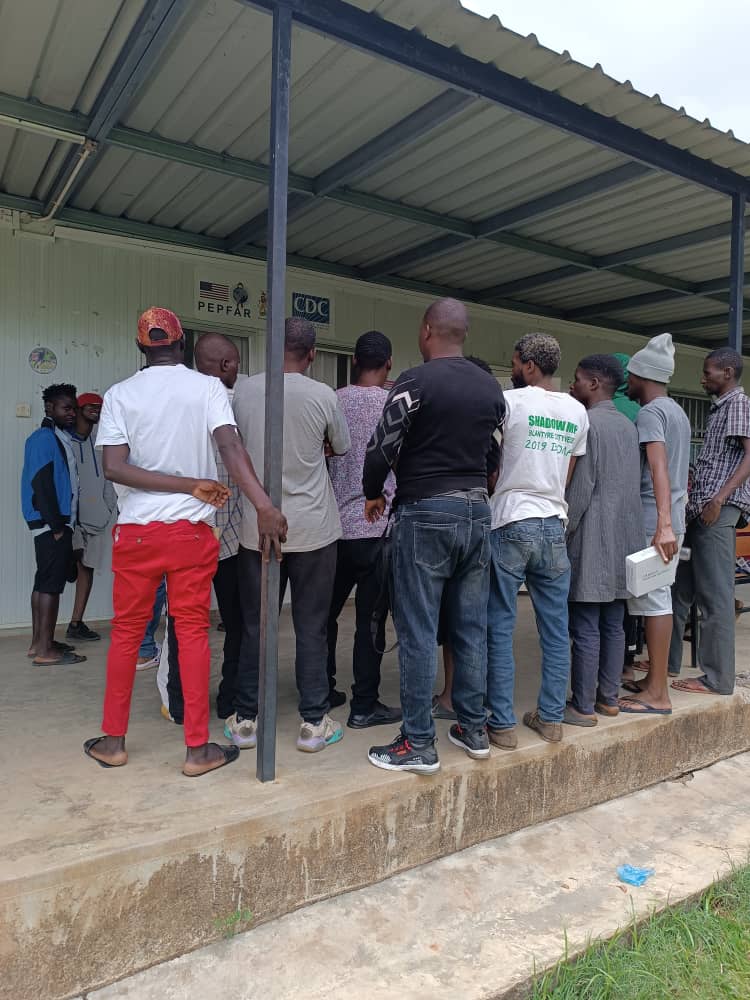
By Edward Phiri
Community Health Rights Advocacy (CHeRA) is implementing an HIV prevention and treatment project called Meeting Targets and Maintaining HIV Epidemic Control (EpiC) focused on male sex workers (MSW) through peer led models driven by peer educators, peer navigators andoutreach workers in collaboration with MoH health care workers (HCWs) in hard to reach and hotspots of Lilongwe, Blantyre, Mangochi, Mzuzu Phalombe and Balaka since 2019.
One of the strategy used by CHeRA is the people centred Differentiated Service Delivery (DSD) model of delivery for services and commodities. The model focuses on promoting health seeking behavior among (MSWs) in their social and sexual networks by provision of financial and technical support to district health offices to undertake outreach services in safe spaces.
The Executive Director of CHeRA, Aniz Mitha said that the core package of (EpiC) project is premised on the HIV prevention and treatment cascade with a reach to test, treat and viral load suppression for HIV prevention, and provision of quality life for the MSW Living with HIV (KPLHIV).
“Practically, our target is tilted to filling existing HIV prevention, case finding, and treatment gaps with a focus on building long-term sustainability to attain and maintain epidemic control by improving performance in key indicators. Our program is paying close attention on HIV Testing and Services (HTS), Pre Exposure Prophylaxis (PrEP), Gender Based Violence (GBV), Human Rights and other essential services; Strengthen collaboration with local health authorities for expanded coverage of essential package to MSWs, People Who Inject Drugs and Transgender Gender people” He further emphasized that ; Raising awareness among the community about available health services, Gender Based Violence (GBV), human rights and establishing bi directional feedback mechanisms to improve service delivery based on community needs and the observed gaps; and in particular in 2024 we will mobilize PWIDs to promote the integration of PWID service package in EpiC project”.
In the first quarter of the project implementation covering 1st October to December 2024, CHeRA is implementing activities in accelerated mode designed to expand social and sexual network through proactive engagement with MSWs, People who Inject and Used Drugs (PWIDs), and Transgender People (TGs) networks to address gaps experienced in the fourth quarter of 2023, Mitha said.
According the Mike Banda (Not real name) who is a beneficiary and recipient of care at Chilomoni Health Centre located in the jurisdiction of the Traditional Authority (TA) Kuntaja echoed that at Chilomoni Health Centre and Chilomoni Nthukwa hotspot area, access and utilization of Key Populations (KP) friendly health and others services was not there due to structural barriers such as attitudes of health care workers (HCWs) towards KPs. Stigma and discrimination was dire which prevented KPs to access services and the HCWs were not providing services to the KPs.
“I recall bad moments where my fellow KPs simply stopped accessing life saving treatment and services [H1] from because of stigmatizing environment by then”.
To-date, CHeRA introduced EpiC project targeting MSWs in their social and sexual network. CHeRA trained Peer Educator, Peer Navigators, Health Service Providers, Law Enforcement Agencies on the Rights of the KPs and provision of KP friendly services. To this effect, KPs are accessing friendly services ranging from HIV prevention to treatment care and support provided by trained HCWs, Peer Educators, Peer Navigators and Outreach Workers. Among others services we access in a friendly and safe space are lubricants and condoms distribution, distribution of Information Education and Communication Materials (IEC), Post-Exposure Prophylaxis (PEP), Pre Exposure Prophylaxis (PrEP), STI screening and treatment, Health Education and Treatment Literacy, HIV Testing and Services, access to Self-test kits, referral HIV, human rights and Gender Based Violence (GBV), ARVs and Viral Load services, Banda narrated during the outreach activity conducted at Chilomoni Nthukwa hospot.
The project’s overall is goal of achieving and maintaining epidemic control by enhancing HIV case finding, treatment, and prevention efforts. This involves identifying 95% of HIV-infected individuals, ensuring 95% of those infected are on anti-retroviral therapy (ART), and achieving viral suppression in 95% of those on ART.
Meeting Targets and Maintaining Epidemic Control (EpiC) is funded by the United States of America (USA) government under Presidential Emergency Fund for AIDS Relief (PEPFAR) initiative through United States AID for International Development (USAID) and FHI360 spanning from 2019 to 2024
Leave a comment